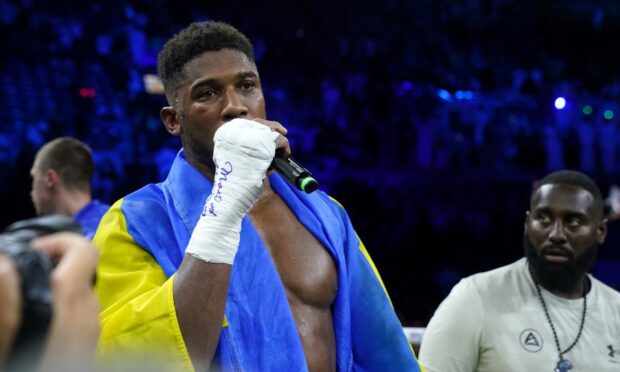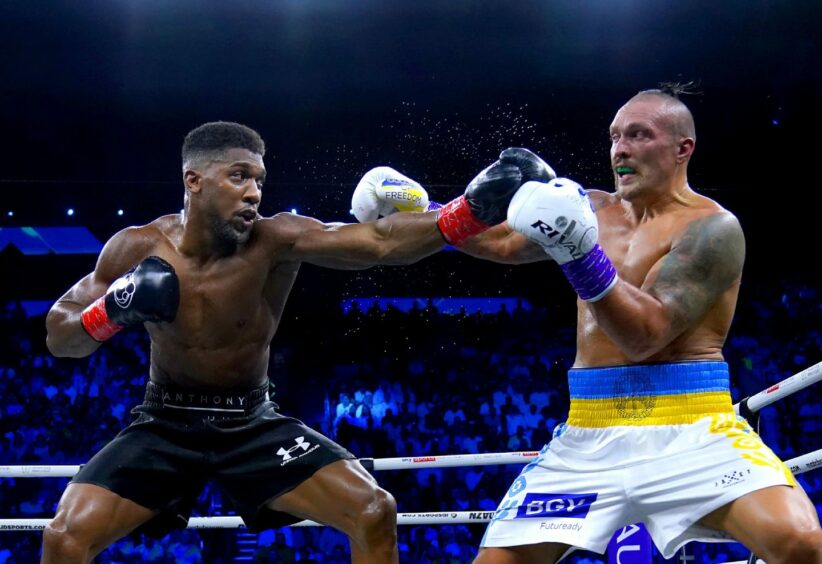Picture the scene.
You have just proven yourself the better man again.
You are still the heavyweight boxing champion after beating the man to retain the titles you took from him in his own backyard a year ago.
You are emotional. There has been months of fighting in your homeland all while you have gone through months of intense physical training.
Mindful of what has been happening in Ukraine, you have used your sway to ensure your home country can join you from afar in what is surely your crowning achievement.
For that fleeting moment, that pride, both national and personal, at seeing your efforts pay off in the searing heat of Saudi Arabia after being taken the distance by your opponent, is flowing through your veins.
Then your beaten opponent throws two of your titles out the ring before leaving the ring, only to return and give an impassioned, if bizarre rambling speech before you can say a word.
The bizarre scene unfolded late on Saturday as British heavyweight Anthony Joshua showed the worst possible timing to steal his victorious opponent Oleksandr Usyk’s thunder in front of the world.
Joshua the master of bad timing
Despite the now commonplace head-scratching scoring of one judge who gave the fight to Joshua, Usyk was the clear winner – just as he was when he beat his opponent last time out in Tottenham in September last year.
Joshua, a man with undoubted talent, chose the worst possible moment to talk about how much work he had put in for his ultimately unsuccessful attempt at once again becoming heavyweight champion of the world.
He was entitled to give his thoughts of course but he knows better than anyone it was Usyk’s moment and, whether intentional or accidental, Joshua took it away from him.
The champion, to his credit, did not let Joshua’s bizarre post-match address, affect him as he called for Tyson Fury to return to the ring and face him – a request the Gypsy King seems happy to accept.
What now for AJ?
As the two dominant champions of the heavyweight division no doubt prepare to thrash out a deal to make the dream match happen one wonders what the future holds for Joshua.
He is now, like Deontay Wilder, a man on the outside looking in. Perhaps an eliminator between the two men cast in the roles of being best of the rest is required.
But the first thing Joshua should do is look at building a stronger, more empathetic support team around him.
It was not so much the case of being a poor loser, more a master of bad timing and a failure to read the room.
In that moment, it was not all about Joshua – but nobody seemed willing to tell him that.
A guiding hand, someone to whisper ‘now is not the time AJ’ in his ear was missing in Jeddah. His standing has been dented as a result.


